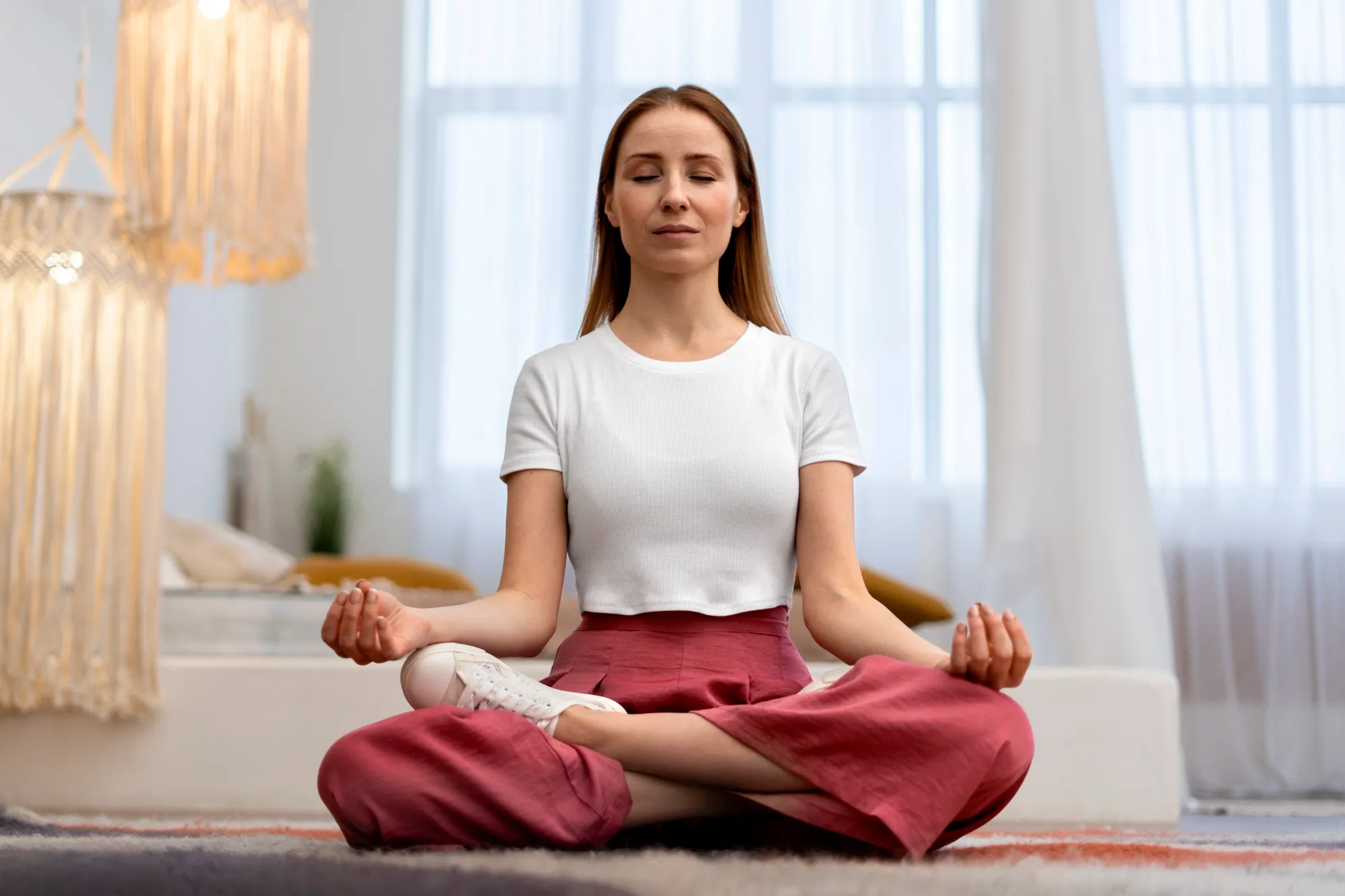It’s normal to feel stressed these days because of how fast-paced and linked our world is. It can be too much to handle all the duties and demands that come with performing well. Mindfulness is an easy and strong way to lower daily stress and improve mental health. Mindfulness doesn’t need any special tools or a lot of time. All you need is the will to stop, breathe, and pay attention. It’s a simple tool that can change your life. It helps you live in the present and deal with problems in life more calmly and clearly.
What Does Mindfulness Mean?
Being fully present in the present moment without judging it is what mindfulness is all about. It means paying attention to your thoughts, feelings, body experiences, and the things around you as they really are, not how you want them to be. This method comes from old meditation traditions, like Buddhism, but it is now widely used in psychology and fitness because it is good for mental health.
Being aware means noticing what’s going on around and inside you without trying to change it. You don’t get caught up in your thoughts; instead, you notice them. Being aware of this helps you put some distance between your feelings and behaviors, which can make you feel a lot less stressed.
How being mindful lowers stress
Being mindful breaks the circle of long-term worry and nervousness. Stress makes our bodies release chemicals like adrenaline and cortisol, which help us fight or run away. This is helpful in an emergency, but it’s bad to do it all the time because of everyday stress. Being mindful slows down this stress reaction, which is helpful.
The parasympathetic nervous system is the body’s natural way of relaxing. When you practice awareness, it gets activated. Your muscles loosen up, your breathing gets deeper, and your heart rate slows down. Regular mindfulness practice lowers your general stress levels and makes it easier to deal with future sources of stress in a calm and effective way.
How to Be Mindful Every Day in Easy Ways
Mindfulness can help you even if you don’t go on a vacation or sit idly for hours. You can make it a part of your daily life by doing small things over and over again.
Aware Breathing
Paying attention to your breath is a simple way to start being more aware. Just be still and pay attention to your breathing. Take slow, deep breaths in and out. Pay attention to how the air feels going in and out. Bring your attention back to your breath slowly if your mind wanders. Mindful breathing for just a few minutes a day can help you relax and concentrate better.
Scan of the body
Think about going over your whole body in your mind, from head to toe. Take note of any stress or pain you feel without trying to change it. This makes you more aware of how worry affects your body and helps you tune into how you feel.
Taking Time to Eat
Try focused on the food in front of you instead of running through meals or doing other things at the same time. Take note of the tastes, smells, textures, and colors. Take your time and enjoy every bite. This not only makes the experience better, but it also helps digestion and stops people from eating without thinking.
Walk with awareness
A short walk can be used as a time to practice awareness. Take time to notice each step, how your feet feel on the ground, the beat of your breath, and the sounds and sights around you. Being aware while you walk clears your mind and gives you a mental break during the day.
Listening with care
Pay full attention to the person who is talking during talks. Put away your other things, look the person in the eye, and listen without thinking about what you’re going to say next. Mindful listening helps people bond more deeply and clear up mistakes, which can be stressful.
Setting up a routine for mindfulness
Setting up a daily mindfulness practice is important for getting long-lasting effects. Take it easy at first. Try five minutes in the morning or before bed. Make the time longer slowly as you get used to it. Make a warning or a cue, like practicing mindfulness while you’re driving or after you brush your teeth.
To stay on track, you can also use awareness tools or guided exercises. A lot of apps have short lessons that are easy for beginners to follow that focus on breathing, relaxing, and sleep. You can use these tools to keep up with your practice and try out new ways to be aware.
Why mindfulness is good for you in the long run
Mindfulness is good for your emotional and physical health in many ways, not just reducing stress. Studies have shown that it can lower blood pressure, help people sleep better, boost their immune systems, and ease the signs of sadness and anxiety. It also helps you control your emotions, which makes it easier to deal with tough scenarios.
Mindfulness makes you more self-aware and strong over time. It makes you more sensitive toward yourself and others, which leads to better relationships and a greater feeling of inner peace.
Problems and Ways to Keep Your Mind Clear
It’s normal to find focus hard at first. Focusing on the present moment can feel strange because our thoughts are used to being busy and being stimulated all the time. Give yourself some time. There is no “right” way to practice mindfulness. What matters is that you do it regularly and are kind to yourself when you get sidetracked.
You can try active types of mindfulness like yoga, tai chi, or mindful writing if you find it hard to sit still. Find something that works for you and make it a part of your daily life.
In conclusion
Mindfulness is a strong technique that is easy to learn and can change how you deal with stress and improve your mental health in general. You can feel less anxious, concentrate better, and get stronger emotionally if you learn to live in the present moment. Mindfulness can help you feel calmer, more grounded, and better prepared to handle whatever challenges come your way. You can do this by breathing mindfully, walking mindfully, eating mindfully, or just being more aware of your thoughts.




